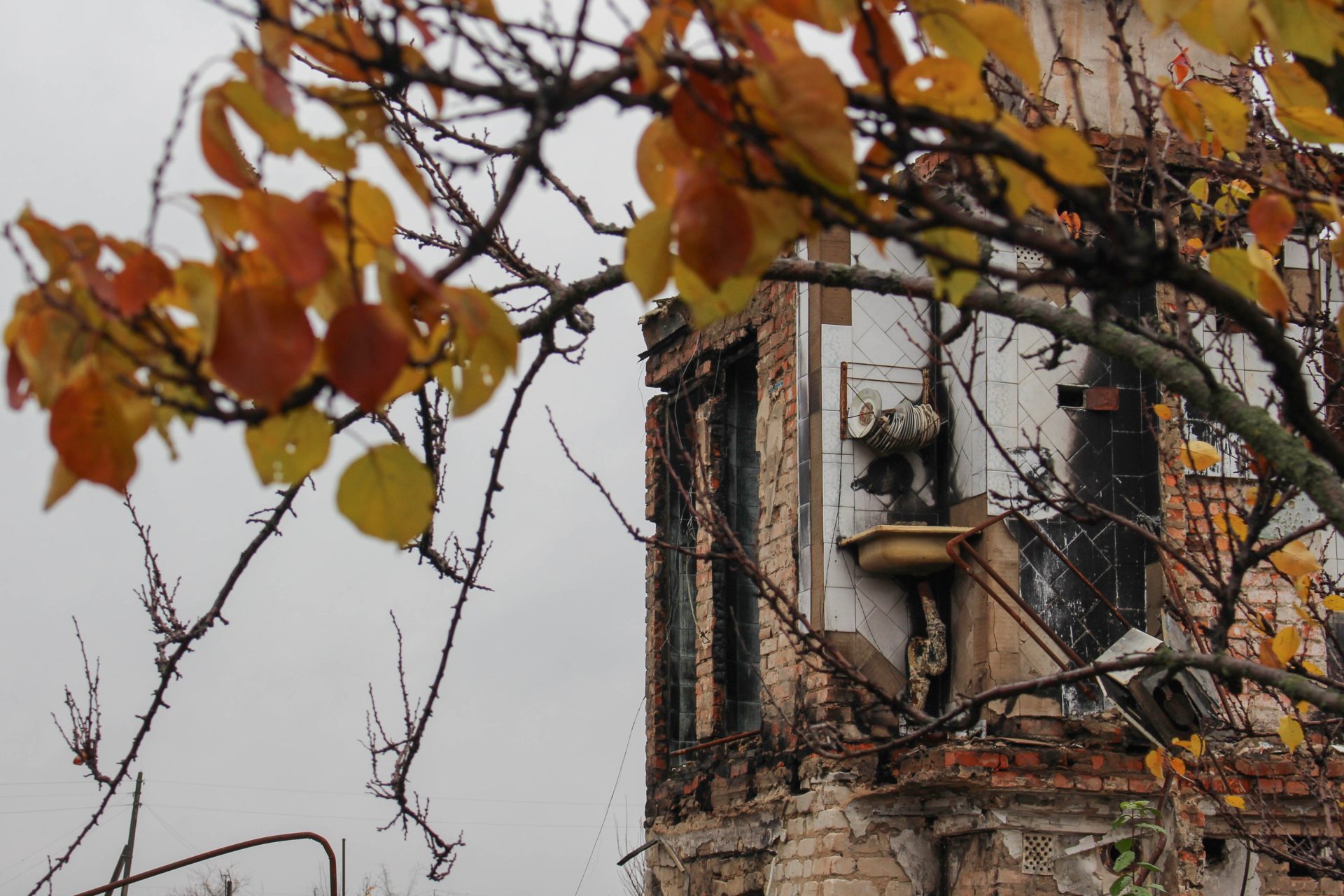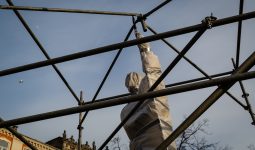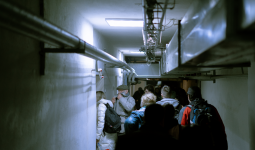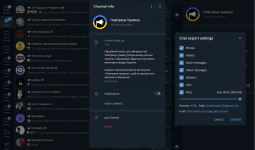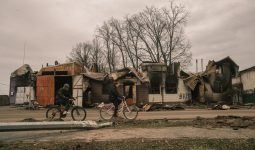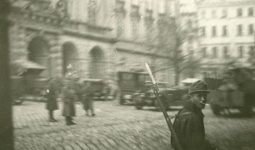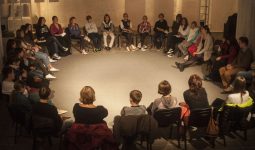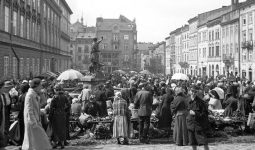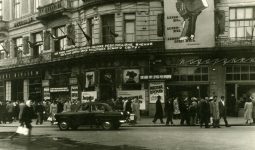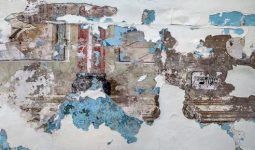Those Who Remained: Testimonies of Kharkiv Region Residents
June 2023 – present
Russia's full-scale invasion of Ukraine has caused a huge wave of refugees to flee the city of Kharkiv and the Kharkiv region. The city of one million people has always been a center of education and science, was proud of the Barabashovo market, the largest in Central and Eastern Europe, and the rapid growth of the IT sector. However, the outbreak of the Great War forced the city to postpone bold business projects and focus instead on the most important issue: how to survive. However, a significant number of residents either quickly returned to the city after leaving or never left Kharkiv at all.
What makes people live under regular shelling? How do they get used to military life, and why do they get offended when others insist on urgent evacuation? These and other questions brought together researchers from Lviv and Kharkiv in the project "Those Who Remained: Testimonies of Residents of Kharkiv and Kharkiv Region". It was important for the project team not only to understand people's motivations, but also to preserve knowledge about everyday strategies for future researchers. In preparation for the project, the interviewers faced many ethical and security issues. But these challenges were overcome through the exchange of experience and cooperation between team members.
The project was implemented over two periods: from June 2023 to December 2023 and from June 2024 to the present. During this time, the researchers managed to record 120 interviews in the area currently considered to be an active war zone, while taking into account security and privacy factors. These interviews represent experiences:
- Kharkiv residents who consciously chose to stay in the city;
- residents of villages and towns that have not been occupied, but are subject to regular shelling, problems with food supplies and housing reconstruction;
- residents of the de-occupied territories who managed to survive the occupation and are working to restore their settlements;
- new residents who came to Kharkiv or the region during the full-scale invasion.
During the second phase of the project in 2024, the research team included photographic documentation of the participants' everyday lives in the study. This approach proved to be surprisingly successful, as our interviewees saw it as an opportunity to formulate their own approach to covering their experiences of war. Also, taking photos allowed the participants to literally ‘see themselves’ through the lens of a professional photographer, an experience that they found very enjoyable.
An important part of the project is the team's internal meetings, which resulted in the researchers preparing publications and presentations at conferences. Among other things, Victoria Nesterenko presented the interim results of the project at the workshop "Kharkiv under Fire. Local History in Wartime" organized by Felix Ackerman and Viktoriia Naumenko at the Fern Campus of the University of Hagen in Berlin. In 2024, two seminars were held at the Center for Urban History: a research seminar "Rediscovering the Possibilities of Visual Language in the Face of a Shortage of Words" dedicated to the photo part of the project in September 2024 and a seminar on the categories of vulnerability and how our respondents overcome it (or not) in December 2024.
The project team in Kharkiv consists of four researchers:
- Viktoriia Nesterenko, a historian and public figure, lecturer at V. N. Karazin Kharkiv National University. She began her work in the field of oral history by collecting interviews for the Museum of Wartime Childhood. Role in the project: project coordinator in 2023, project manager in 2024.
- Yulia Skubytska, historian, received her PhD from the University of Pennsylvania, worked as the director of the Museum of War Childhood in Ukraine, and is a lecturer and researcher at Bard College (USA). Role in the project: supervisor in 2023, consultant in 2024.
- Olha Chystotina defended her PhD thesis in philosophy on the eve of the full-scale invasion. In 2022, she finished teaching at the university and focused on photography, which became not only a hobby but also a way of living the experience of war. Role in the project: interviewing in 2023, interviewing and photo documentation in 2024.
- Yaroslav Shkabura is a historian, lecturer at V. N. Karazin Kharkiv University, participant in projects related to public history and research on the Kharkiv Euromaidan. Role in the project: interviewer in 2023-2024.
Project team at the Center for Urban History:
- Sofia Dyak, historian, director of the Center for Urban History, general project management, consulting;
- Natalia Otrishchenko, sociologist, researcher, curator of the oral history collection of the Urban Media Archive at the Center for Urban History, project manager of the project "24.02.22, 5 am: Testimonies from the War" project. Role in the project: methodological consulting of the project;
- Valentyna Shevchenko, resident of Istryk, archivist of the Urban Media Archive at the Center for Urban History. Role in the project: archiving interviews;
- Anastasia Kholiavka, head of the Urban Media Archive at the Center for Urban History. Role in the project: archiving photo documentation materials, consulting;
- Yaryna Paniv, financial manager at the Center for Urban History. Role in the project: financial management.
Transcription of the interviews: Marharyta Drobitska, Karyna Konyayeva, Valentyna Korol, Hanna Kostiuchenko, Dmytro Lavryk, Yelyzaveta Malik, Valeria Fedoryaka.
The project is implemented with the financial support of the Körber Stiftung
Credits
Cover Image: Olha Chystotina
